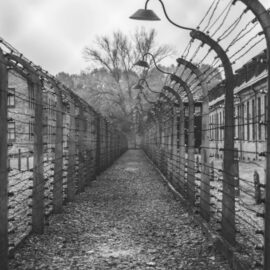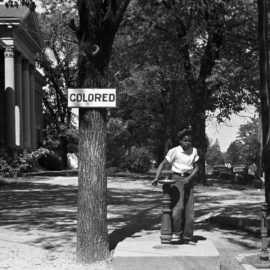

This article is an excerpt from the Shortform summary of "The Hiding Place" by Corrie ten Boom. Shortform has the world's best summaries of books you should be reading.
Like this article? Sign up for a free trial here .
What was the role of the ten Boom watch shop in Haarlem? How did the community feel about the ten Boom watch shop?
Learn more about the ten Boom watch shop, Haarlem businesses, and the impact of Nazi occupation.
The Ten Boom Watch Shop, Haarlem, and Corrie’s Childhood
Corrie’s childhood was a happy one. Looking back, she fondly recalled watching her father work in his watch shop (located on the ground floor of the Beje, below the family’s living quarters) and accompanying him on the train to business trips in Amsterdam.
Celebrations and Unrest
One afternoon in 1937, the ten Booms held a party to celebrate the 100th anniversary of their family watch shop, started by Corrie’s grandfather, Willem, in 1837. The entire Haarlem community showed up to toast the ten Boom family, including fellow congregants at their church, St. Bavo’s, as well as business associates, suppliers, customers, and even competitors. For the ten Boom watch shop, Haarlem friends and neighbors were so important.
Although the day was joyous and carefree, there was whispered, frightened talk of the menacing political situation brewing in neighboring Germany. Willem had traveled and studied extensively in Germany. As a student in the 1920s, years before the rise of Hitler, Willem had written an academic paper about the growing specter of racial ideology in the country, and, in particular, the widespread acceptance and open expressions of antisemitism. With such a background, Willem was knowledgeable about developments in Germany and, at the party, spoke to guests about his fears of another European general war, this one brought on by the murderous Nazi ideology of racial superiority and territorial expansion.
But Willem was not the only source of the growing concern about what was happening in Holland’s large, powerful neighbor to the east. From the ten Boom watch shop in Haarlem, Casper had long enjoyed business contacts in Germany, as many of his suppliers, customers, and wholesalers were based there. Many of these individuals, Corrie knew, were Jewish. But recently, the contact with these Jewish business contacts had dried up. Letters sent to these people would be returned with a curt official reply that they had either moved away and changed addresses, or gone out of business. Often, they received no more than a cryptic reply that read simply, “address unknown.” The whole thing was mysterious—what had happened to these friends and colleagues, with whom the watch shop had done business for years?
(Shortform note: By 1937, many of these Jewish-owned businesses may have fallen prey to Nazi Germany’s Arisierung, or “Aryanization,” policy. Under this policy, businesses owned by Jews were stolen from their original owners and given to racially “pure” Germans, who often paid the Jewish owners a fraction of the true value of the enterprises, if they were compensated at all. Jewish businesses ranging from major department stores to small sole proprietorships were expropriated through this process. According to Yad Vashem, only 8,000 of the 50,000 Jewish-owned enterprises that had existed in 1933 were still in business by 1938.)

———End of Preview———
Like what you just read? Read the rest of the world's best summary of Corrie ten Boom's "The Hiding Place" at Shortform .
Here's what you'll find in our full The Hiding Place summary :
- Why devout Christian Corrie ten Boom decided to stand up to the Nazi occupation
- How ten Boom and the Jewish neighbors she was hiding were caught
- How ten Boom survived the concentration camp and left with even stronger faith






